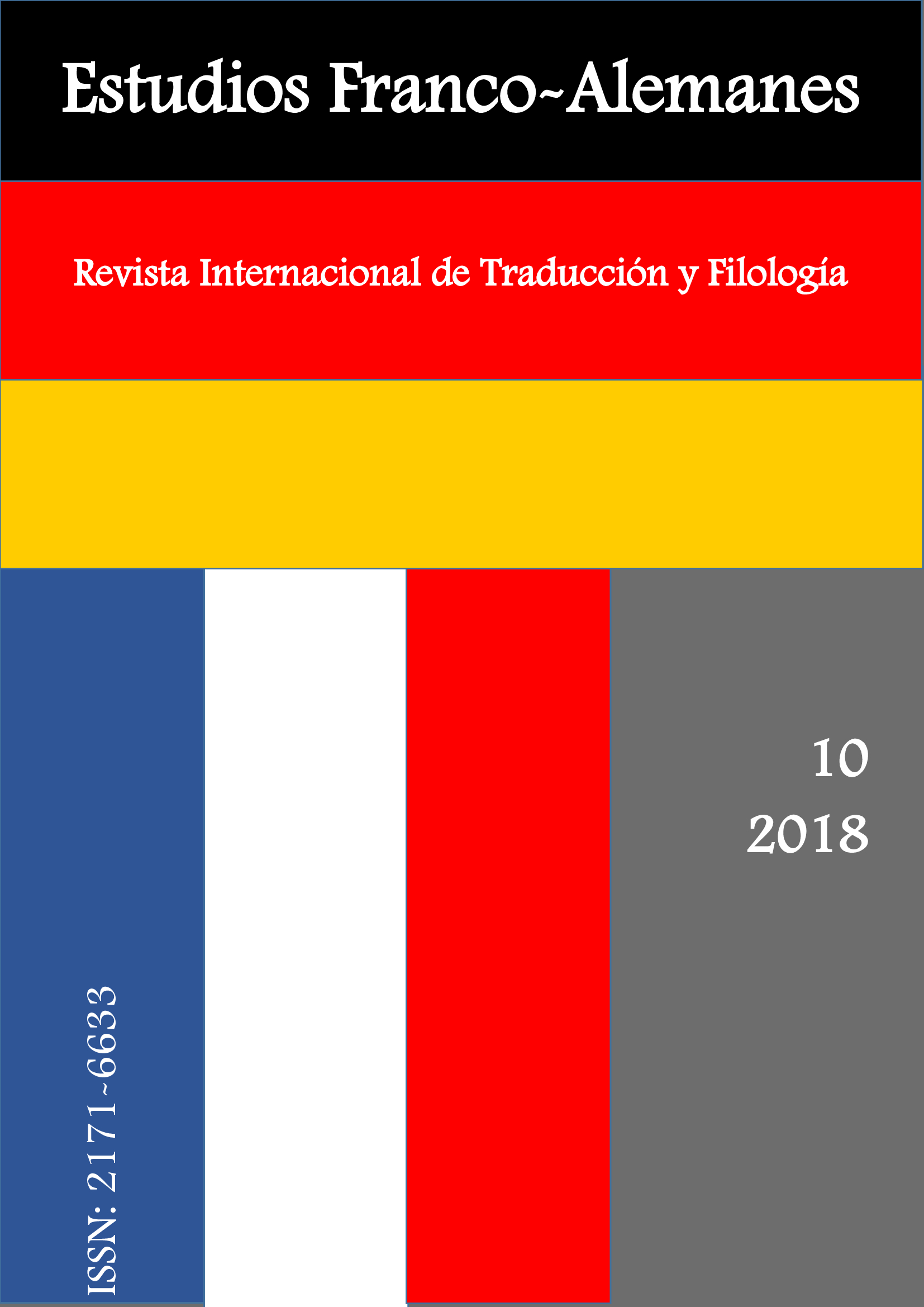El canon histórico de "Aspects of the Theory of Sintax" (1965) y "Cartesian Linguistics" (1966): la incidencia de las fuentes alemanas y francesas
DOI:
https://doi.org/10.21071/estfa.v10i.15854Schlagworte:
historiografía de la lingüística; canon histórico, Chomsky, fuentes francesas, fuentes alemanas; Cartesian Linguistics; Aspects of the Theory of Syntax //, historiography of linguistics; historical canon; Chomsky; French sources; German sources; Cartesian Linguistics; Aspects of the Theory of SyntaxAbstract
La lingüística cartesiana ha sido objeto de un intenso debate dentro del ámbito de la historiografía de la lingüística, en concreto aquellos trabajos destinados a evaluar si existe un uso sesgado de las fuentes que componen este constructo. En esta investigación realizamos una descripción detallada del canon histórico (Zamorano Aguilar 2009 y 2010) presente en Cartesian Linguistics (1966) y en su precedente, Aspects of the Theory of Syntax (1965) con la intención de caracterizar la estadísticamente la presencia francesa y alemana en él. Los datos nos permiten concluir que estas dos naciones son las más relevantes para la constitución de su canon, tanto cuantitativamente, puesto que presentan una frecuencia de aparición mayor que la del resto, como cualitativamente, debido a la importancia mayúscula de Descartes y Humboldt. Este trabajo, además de bosquejar futuras líneas de investigación relativas a análisis exhaustivos de figuras y textos francoalemanes, sirve como punto de inicio para el desarrollo de estudios historiográficos particulares, generales y contrastivos presentes en la obra de Chomsky.
Cartesian linguistics has been subject to intense debate within the field of historiography of linguistics, specifically those works aimed at assessing whether there is a biased use of the sources that make up this construct. In this research we carry out a detailed description of the historical canon (Zamorano Aguilar 2009 and 2010) present in Cartesian Linguistics (1966) and its predecessor, Aspects of the Theory of Syntax (1965) with the intention of characgterize from a statistical point of view the French and German presence in it. The data allow us to conclude that these two nations are the most relevant for the constitution of his canon, both quantitatively, since they present a greater frequency of appearance than the rest, and qualitatively, due to the capital importance of Descartes and Humboldt. This work, in addition to outlining future lines of research regarding exhaustive analyses of Franco-German figures and texts, serves as a starting point for the development of particular, general and contrasting historiographic studies present in Chomsky's work.



